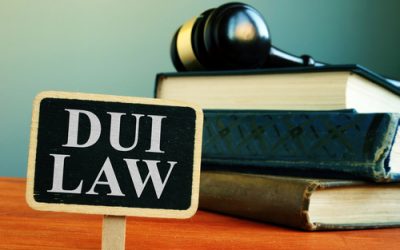
Waiving your preliminary hearing might be beneficial in certain situations. The most common reasons are:
- You have a favorable plea deal already, which makes the hearing unnecessary.
- The evidence against you is overwhelming, so your defense should focus on later stages in the trial.
- The preliminary hearing might reveal information that could harm your case at trial, so it is waived as a strategic move to keep information from entering the public record too soon.
Waiving your preliminary hearing should be decided after discussing your case with a Los Angeles DUI lawyer. In many cases, a lawyer can take action during these hearings to get the prosecution to give up their case. Waiving a preliminary hearing is not something to do without consideration.
What Is a Preliminary Hearing in a DUI Case?
A preliminary hearing, also known as a probable cause hearing, occurs before the actual trial. It’s a screening process for the prosecution’s case against you.
During this hearing, the prosecutor must present evidence to a judge, demonstrating enough probable cause to believe you committed the DUI offense. This is not a determination of guilt but rather a threshold to decide whether the case should proceed to trial.
The preliminary hearing allows your defense attorney to cross-examine witnesses, challenge evidence, and potentially have charges reduced or dismissed if the prosecution’s case is weak. It’s also a chance to gauge the strength of the case against you.
What Happens During a Preliminary Hearing?
A DUI preliminary hearing begins with the prosecution presenting its case. They’ll call witnesses, typically the arresting officer or other law enforcement personnel involved in your case. These witnesses will testify about the circumstances of your arrest.
Your defense attorney then can cross-examine the prosecution’s witnesses, challenging their testimony and pointing out any inconsistencies or weaknesses in the evidence. This is not just about poking holes in the prosecution’s case; it’s also an opportunity for your attorney to gather more information.
After the hearing, the judge will decide based on the evidence presented. If the judge finds probable cause to believe you committed the offense, your case will be “bound over” for trial. However, the charges could be dismissed or reduced if the judge determines insufficient evidence.
What Are the Potential Drawbacks of Waiving a Preliminary Hearing?
Waiving your preliminary hearing does come with potential drawbacks. When you waive your hearing, you’re giving up an opportunity to challenge the prosecution’s evidence early in the process. This could mean missing a chance to have charges reduced or dismissed before trial.
The preliminary hearing can also provide valuable insights into the prosecution’s case. These insights would give your defense team a better idea of what to expect at trial. Waiving the hearing denies your defense the opportunity to examine evidence and witness testimony early.
Lastly, waiving the hearing might signal to the prosecution that you won’t contest the charges vigorously. This could impact future plea negotiations or the prosecution’s approach to your case. This would not apply if there is already a plea deal in place.
How Does Waiving a Preliminary Hearing Affect My DUI Case Timeline?
Waiving your preliminary hearing can speed up the legal process in your DUI case. Skipping this step will allow you to move more quickly, but this may not be in your best interest.
The time between arrest and trial can be crucial for building a strong DUI strategy. Your attorney may need this time to investigate, gather evidence, and prepare arguments on your behalf.
Carefully consider whether the potential time saved by waiving is worth the trade-off of losing the preliminary hearing’s benefits. Your attorney can help you weigh these factors in your case and advise you on the best course of action.
Should I Consult an Attorney Before Deciding to Waive My Preliminary Hearing?
Absolutely. The decision to waive your preliminary hearing should only be made by consulting an experienced DUI attorney. This choice can have significant implications for your case, and it’s crucial to have professional guidance.
An attorney can evaluate the specifics of your case, including the strength of the evidence against you, potential defense strategies, and the likely outcomes of various approaches. They can explain how waiving or proceeding with a preliminary hearing might impact your situation.
Only a qualified attorney familiar with your case can advise you on whether to waive your preliminary hearing. This article only shares the pros and cons of doing it.
Contact a Los Angeles DUI Lawyer for Help
While waiving can expedite the process in some cases, it also means giving up a significant opportunity to challenge evidence and gain insights into the prosecution’s case. You should not waive your preliminary hearing without first consulting with your lawyer.
Contact an attorney if you’re facing DUI charges and unsure how to proceed with your preliminary hearing. Los Angeles DUI Attorneys can connect you with a lawyer to review your case, explain your options, and help you make the best decision for your future.







